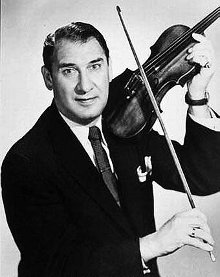A Quote by William Makepeace Thackeray
If you take temptations into account, who is to say that he is better than his neighbor?
Related Quotes
We forget that there is much more patriotism in having the audacity to differ from the majority than in running before the crowd; we forget that in the resistance of the minority some of the biggest things in our own history have been accomplished, and the man who looks on the Stars and Stripes and doesn't hold a right to say nay to his neighbor, even if the neighbor is of the larger party, has forgotten the history of his country.
You are right,” he had said. “Love is not the word. No one can love his neighbor. Say, rather, ‘Know thy neighbor as thyself.” That is, comprehend his hardships and understand his position, deal with his faults as gently as with your own. Do not judge him where you do not judge yourself. Madame, this is the meaning of the word love.
You are angry with your neighbor, you despise him, do not like to speak peaceably and lovingly to him, because there is something harsh, abrupt, careless, unpleasant to you in his character, in his speech, in his manners-because he is more conscious of his dignity than perhaps is necessary; or because he may be somewhat proud and disrespectful; but you yourself, your neighbor's physician and teacher, are more guilty than him.
There are many who say more than the truth on some occasions, and balance the account with their consciences by saying less than the truth on others. But the fact is that they are in both instances as fraudulant as he would be that exacted more than his due from his debtors, and paid less than their due to his creditors.
It is easier to love humanity as a whole than to love one's neighbor. ... Some of the worst tyrannies of our day genuinely are "vowed" to the service of mankind, yet can function only by pitting neighbor against neighbor. The all-seeing eye of a totalitarian regime is usually the watchful eye of the next-door neighbor. In a Communist state love of neighbor may be classed as counter-revolutionary.
Theocracy is the worst of all governments. If we must have a tyrant, a robber baron is far better than an inquisitor. The baron's cruelty may sometimes sleep, his cupidity at some point be sated; and since he dimly knows he is doing wrong he may possibly repent. But the inquisitor who mistakes his own cruelty and lust of power and fear for the voice of Heaven will torment us infinitely because he torments us with the approval of his own conscience and his better impulses appear to him as temptations.
'Greater love has no man than this that a man lay down his life for his friends' (Jn. 15:13). In truth if someone hears an evil saying, that is, one which harms him, and in his turn, he wants to repeat it, he must fight in order not to say it. Or if someone is taken advantage of and he bears it, without retaliation at all, then he is giving his life for his neighbor.
There is no greater love than that a man lays down his life for his neighbor. When you hear someone complaining and you struggle with yourself and do not answer him back with complaints; when you are hurt and bear it patiently, not looking for revenge; then you are laying down your life for your neighbor.





































